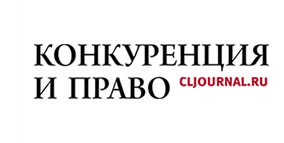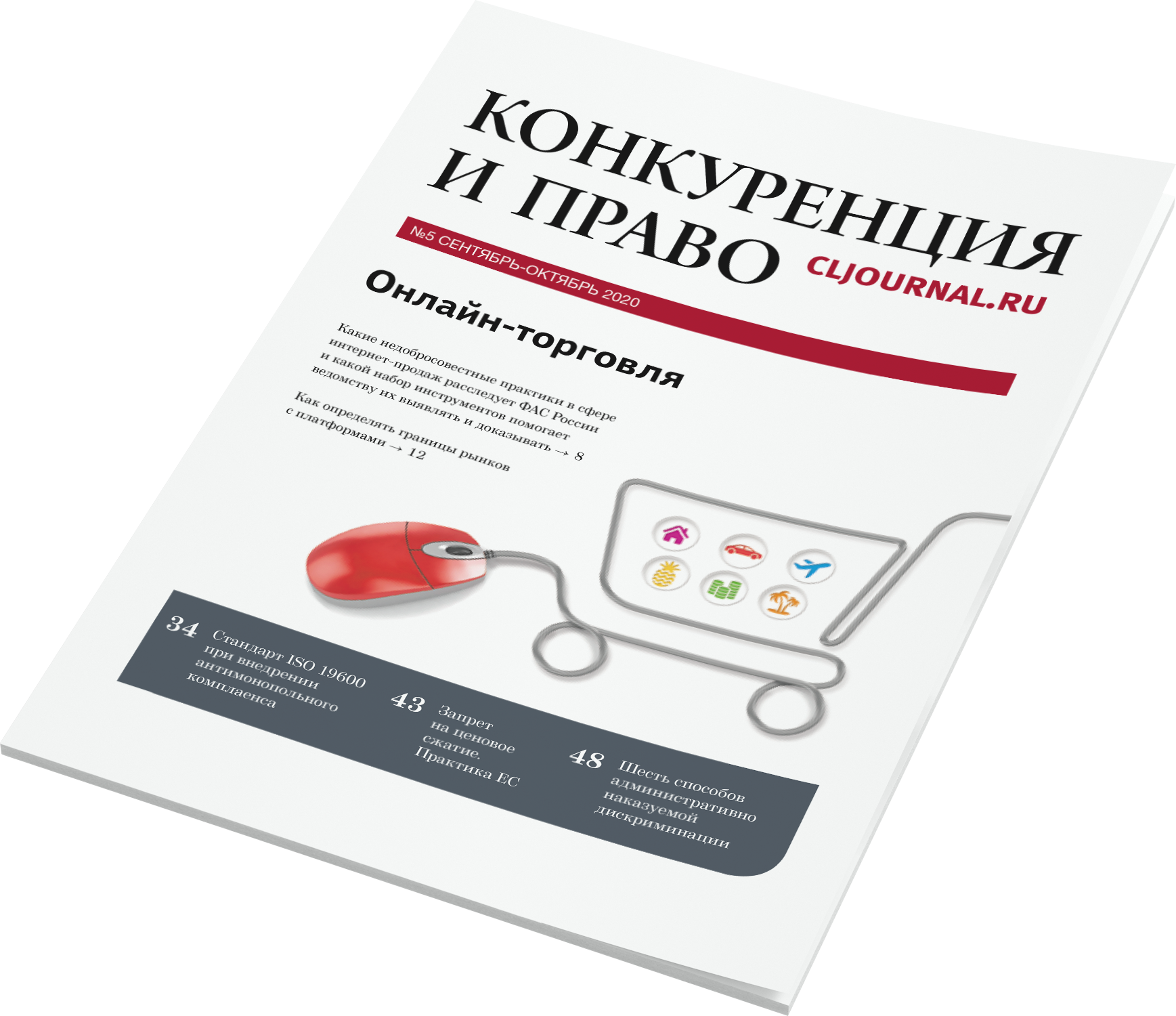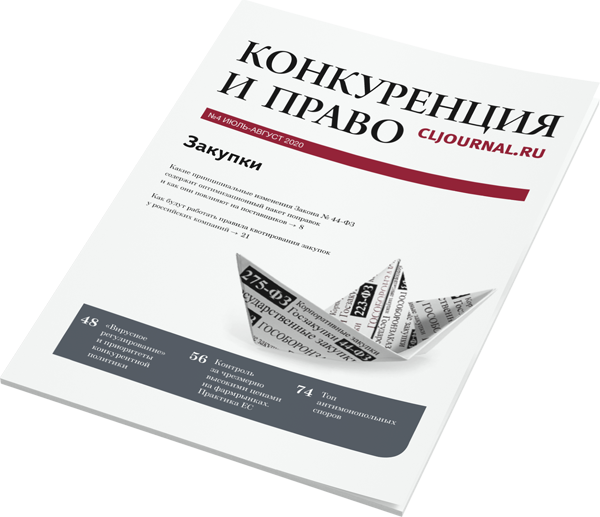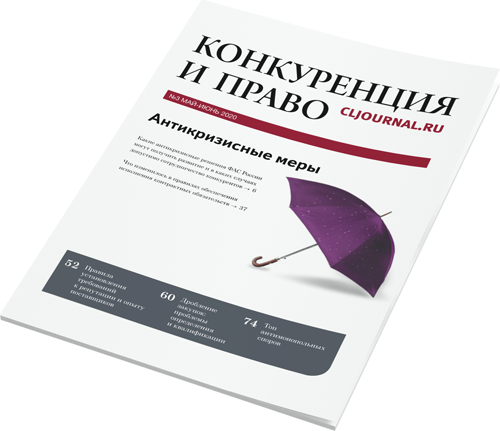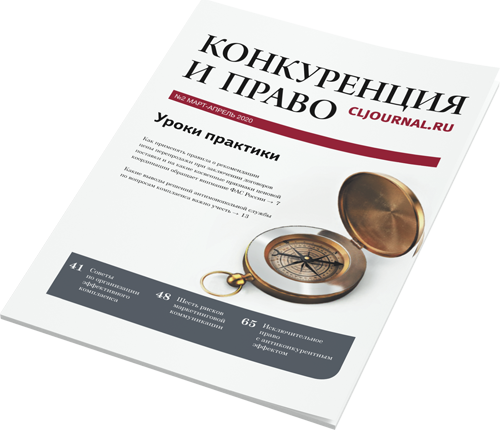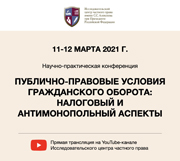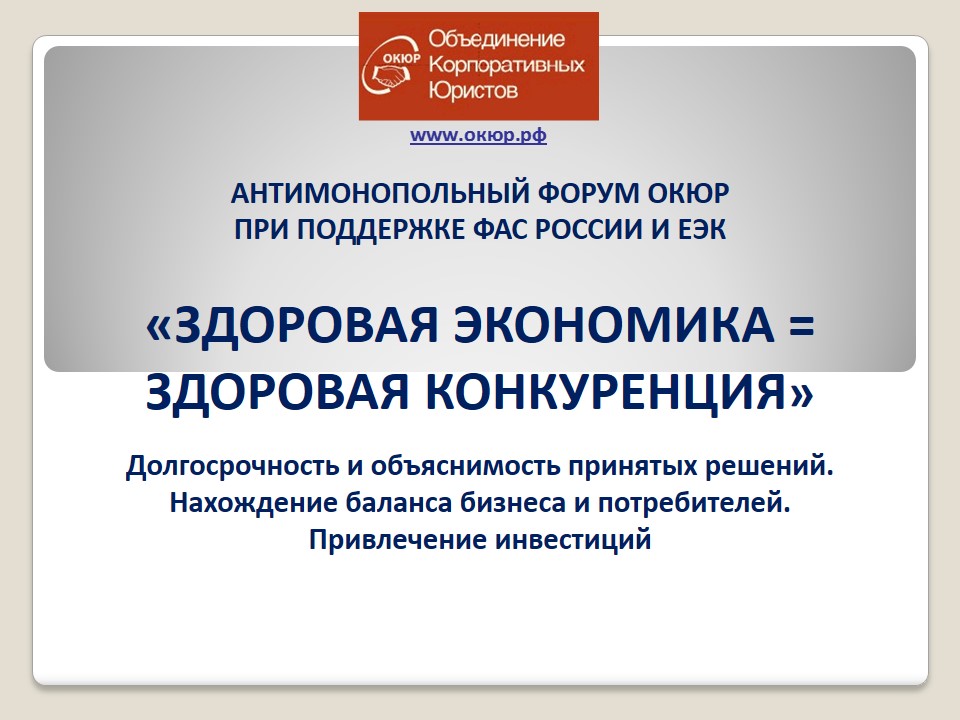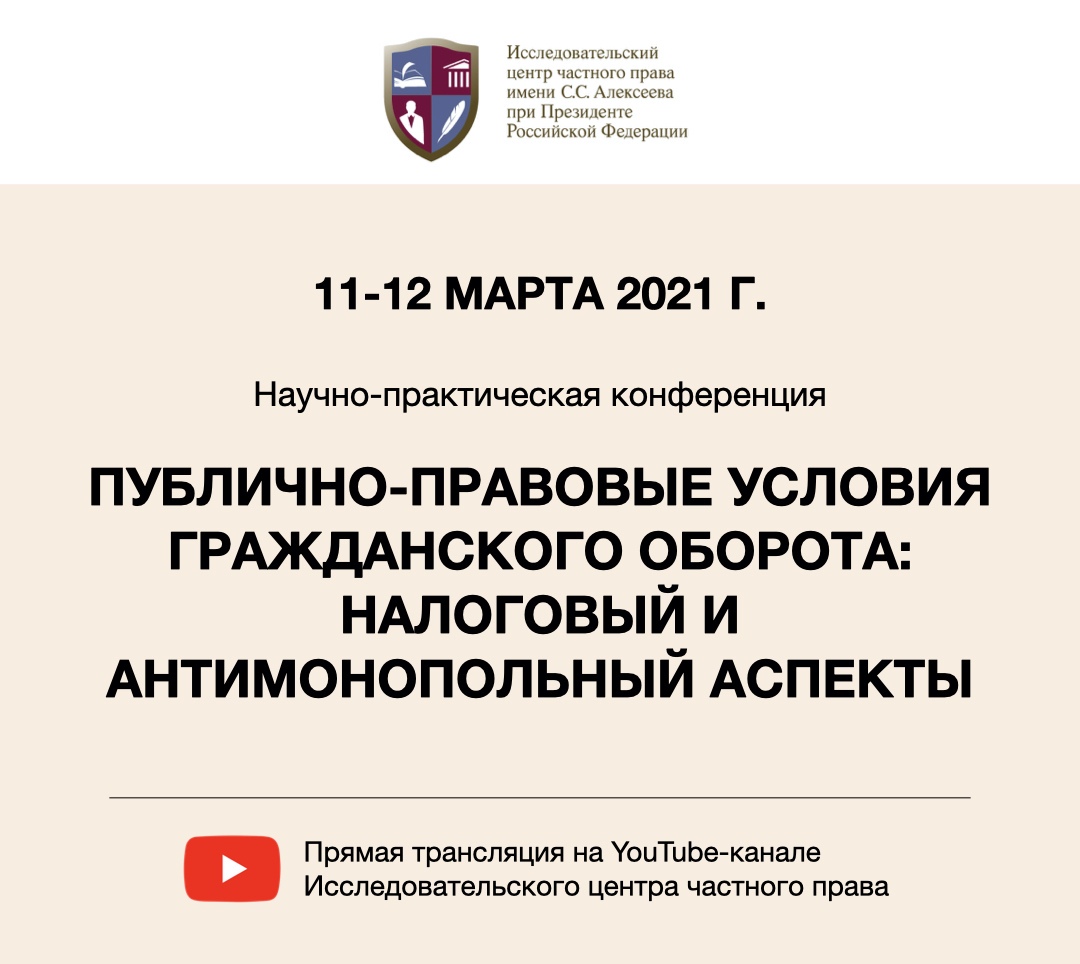|
||||||
 Elena Sokolovskaya, Chief Expert of Competition and Law journal
Online trade is capturing ever more markets and industries. Although current legislation is not always ready for new models of commercial relationships, the antitrust authority is striving to detect and prevent offences in time, including those involving online sales. This is primarily true for digital aggregators and platforms which, in the absence of stringent restrictions, can create additional obstacles for businesses, impose conditions on contracting parties and exert pressure on consumers. Barriers are being put up, for instance, with the assistance of price parity. Let us examine what sort of legal assessment is given to these restrictive practices in Russia and the European Union.
The series of investigations into the operations of Booking.com, Expedia.com and Trip.com have drawn massive public attention. These online hotel booking services used manipulative tactics in working with clients to gain unfair competitive advantages. The antitrust analysis was focused primarily on whether it was lawful to establish pricing parity. In 2013, the same problem was tackled in the case of Amazon. Sellers of products that used this trading platform were prohibited from setting lower prices or offering better terms on other electronic resources. In the tourism sector Booking.com adhered to a similar policy in relation to hotels. If a hotel breached this condition the platform could drop its rating or stop doing business with it altogether, which inevitably affected its sales and profits. The European Commission examined the case. It established that this practice contravenes the legislation on protecting competition; specifically, it violates the ban on vertical agreements provided for by Article 101(1) of the Treaty on the Functioning of the European Union, because:
Further to the case proceedings Booking.com had to make the contractual provisions less restrictive and to replace wide price parity with narrow parity clauses. Narrow parity means that a company may extend the restriction on the opportunity to offer better prices and terms to its own hotel websites, but not to other sales channels. Wide price parity has, therefore, been recognised as inadmissible. At the same time, there is no uniform approach to assessing whether narrow price parity has been established: its legal nature, effect on and economic implications for competition have not been thoroughly studied. Neither has any definite solution to this problem been developed in practice, but France, Austria, Italy and Belgium have already introduced a ban on any price parity clauses. Under French legislation, for instance, it is inadmissible to include in agreements between hotels and online agents clauses prohibiting the sale of accommodation more cheaply than offered by internet sales partners. These amendments are aimed at limiting the monopolistic position of giant platforms on the market of electronic booking systems. In the meantime, in the absence of strong competition the pernicious former policy may take a hidden form with the restrictions being observed for appearance’s sake. At the same time, in their judgements handed down in 2019 German and Swedish courts noted that, although narrow parity clauses may limit competition, they are not illegal in themselves, because a narrow parity policy may be pursued as protection from free-riding or with a view to compensating investment costs. In addition, under the European Commission’s Final Report on the E-commerce Sector Inquiry, parity clauses may be recognised as admissible if the platform’s share does not exceed 30% (Article 621 of the Report from the Commission to the Council and the European Parliament, Final Report on the E-commerce Sector Inquiry, COM/2017/0229 final of May 10, 2017). If this threshold is exceeded an individual assessment of the actual circumstances will be required. In Russia, the antimonopoly service is also examining the case of Booking.com, but in the light of another element of the offence. The platform has not complied with a warning that essentially demanded that it remove the clause on providing the best price from contracts with Russian hotels.Such a restriction could be preserved only with regard to the sales channels controlled directly or indirectly by the accommodation property (facility) or by a group of persons that such a property (facility) is part of. As a result, a case was instigated on the ground of an abuse of a dominant position in the form of binding partners to disadvantageous contractual terms. No final decision has yet been handed down in this case. The Booking.com case triggered legislative initiatives aimed at improving the regulatory base in the sphere of tourism in Russia. For instance, the non-governmental organisation Opora Russia (Pillar of Russia) has put before the antitrust regulator its suggestions for amendments to Federal Law No. 132-FZ “On the fundamentals of tourist activity in the Russian Federation” dated 24 November 1996. It has been suggested that parity with respect to prices of hotel rooms should be prohibited when business is conducted with online booking systems and that every effort should be made in general to promote compliance with such conditions. In September 2020, the antimonopoly service issued another warning to Booking.com demanding that the platform cancel parity conditions in all sales channels for hotel services.
The transformation of traditional business processes poses a challenge to the legislative regulation of commerce. Price parity is just one of many marketing strategies that companies frequently apply to promote their services on the market and reinforce their economic position. Detecting and putting an end to such restrictive business practices in e-commerce allows sellers to set prices freely, stimulate price competition and independently offer more advantageous terms to consumers, as well as giving the chance of making the best choice based on one's own preferences rather than forced standards. 07 октября 2020 г.
|
|

